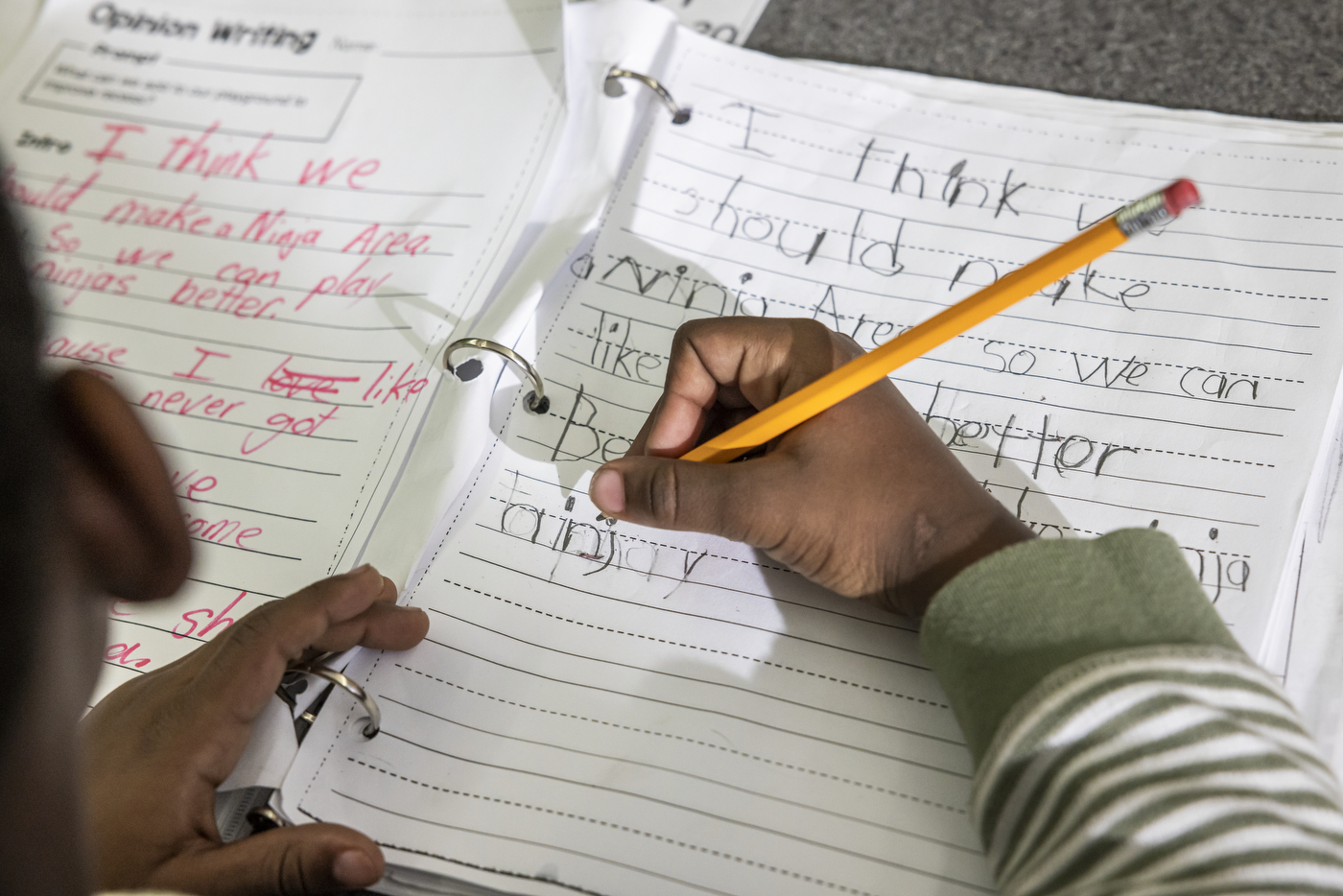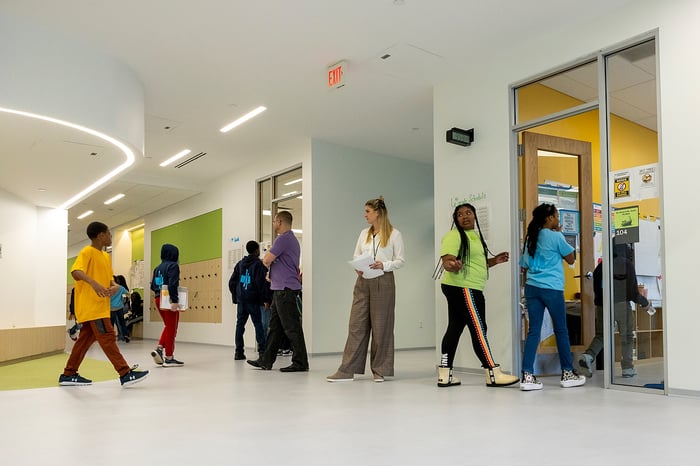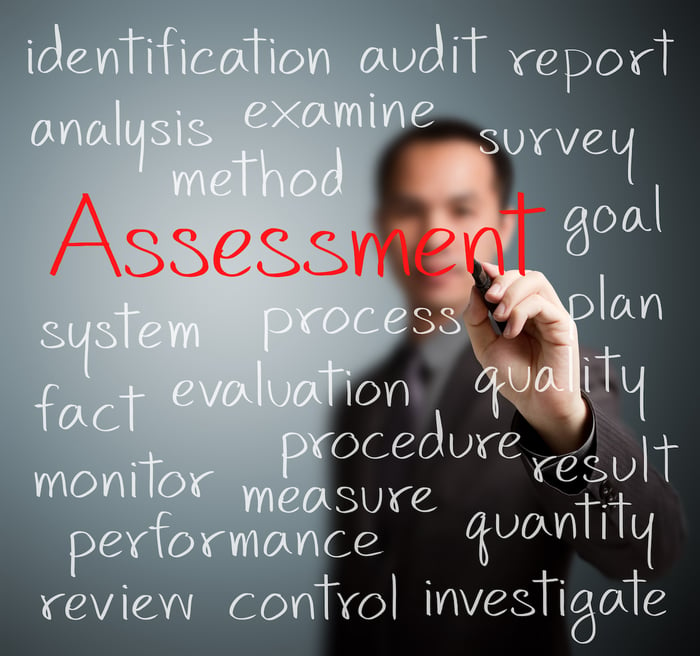New Case Studies Reveal Practical Strategies to Manage Disruptive Student Behavior
Impact • 6 min read • Aug 17, 2023 3:33:33 PM • Written by: Sarah Sandelius

Over the past two years, The Ability Challenge (ABC) collaborated with AppleTree Early Learning Public Charter School - Parklands Campus and Yu Ying Public Charter School to enhance outcomes for students with disabilities. Supported by D.C.’s Office of the State Superintendent of Education’s SOAR grant, the project resulted in case studies showcasing valuable insights.
Much like the majority of schools across the nation, disruptive student behavior is an ongoing challenge across both schools - with more frequent disruptive classroom behavior, teachers find themselves with less time to spend on instruction and learning.
%20(1).webp?width=713&height=404&name=Lets%20Talk%20(1)%20(1).webp)
The Challenges: Different Paths to More Effectively Managing Disruptive Student Behavior
While both schools came to ABC with similar challenges, the contexts of each school required different interventions to bring about change. The AppleTree team sought to enhance their individual capacity to respond to the most disruptive behaviors, as the early childhood setting requires a discrete focus on teaching children how to navigate school for the first time. As such, they set out to implement new behavior intervention strategies aimed at increasing student learning time and improving student outcomes. Yu Ying, on the other hand, looked to address behavior-related hurdles that were most acutely seen during instructional transitions, as a way to ensure that students were ready to learn, rather than spending unnecessary time managing disruption between activities.
Improvement Process: Understanding Behavior and Managing Transitions
Partnering closely with each school, ABC conducted a comprehensive needs assessment in alignment with the THRIVE Framework for Quality Special Education and built the processes necessary to support cycles of continuous improvement. At AppleTree, the three improvement cycles aimed to provide teachers with a solid foundational grasp of behavior functions and effective responses, collecting data along the way to deepen and refine teachers’ understanding of and response to disruptive behaviors. At Yu Ying, the three cycles focused on helping teachers improve their classroom transitions to decrease misbehavior and time spent on redirection rather than on lessons. Through the three cycles and data assessment and reflections along the way, Yu Ying uncovered consistent transition practices which they codified into the “ACERS Transition Framework.”
The Results: Measurable Improvement in Student Engagement and Time on Task
While there is still ongoing work ahead, both schools have made remarkable improvements, as shown by quantitative and qualitative measures. At AppleTree, empowering teachers with an understanding of functions of behavior and effective interventions led to a 25% increase in student engagement over a year. This success can be attributed to heightened teacher knowledge and focus, driving improvements in instructional quality, and real-time management of behavior. Notably, there was also a 3.5% boost in teacher self-efficacy, the belief in their ability to impact student learning and development, which is a factor tied to improved student outcomes. At Yu Ying, students have become more engaged and attentive during classroom transitions, evidenced by a rise in the proportion of intervals where over 90% of students stayed on task. Teachers at Yu Ying experienced a 4.4% increase in self-efficacy, particularly related to their ability to influence engagement and learning through classroom management and instructional strategies.
.png?width=713&height=404&name=Rounded%20Pictures%20-%20Paid%20%20New%20%20ABC%20photos%20(3).png)
Takeaways for Your School
Dealing with disruptive student behavior is a common challenge for schools, educators, and leaders. The path to improvement varies for each institution, but clarity on the right intervention significantly accelerates progress. This is why ABC advocates starting with a needs assessment. Even without a full assessment, there are actionable insights from these case studies that all educators can apply immediately:
- Help Teachers Understand the Functions of Behavior: At AppleTree, it was clear that better training in behavior functions was key. This helps diagnose the root causes of disruptive behavior and apply precise interventions. This blog post offers an in-depth exploration and a cheat sheet on behavior functions for immediate implementation. ABC also provides tailored full or half-day training, which has been highly effective for many of our partners.
- Strengthen Approaches to Classroom Transitions: Yu Ying's experience highlighted the transformative power of refining processes like classroom transitions.
| Clear verbal directions before and during transitions | Return time if transitions are completed early |
| Positive narration during transitions | Employ visuals |
| Signal tasks using songs | Utilize class jobs |
| Use timers | |
The ACERS Transition Framework is also a universal process for all teachers seeking improved transitions.
- Pinpoint Your School’s High Leverage Improvement Areas: Schools wanting a more targeted and customized approach to better managing disruptive student behaviors can engage in the same type of process that AppleTree and Yu Ying engaged in with ABC starting with a needs assessment. ABC’s complete approach to improvement offers a tailored and individualized set of supports for leaders and educators aligned to the five core elements of ABC's THRIVE Framework for Special Education Quality. Or set up a time to chat and we'll determine the best next steps together!
Ready to Make an Impact For Your Most Diverse Learners?
Our Latest
Related Articles

June 30, 2025 | school improvement
Leaders Can't Wait: Our Roadmap for Supporting Students When Federal Policies Fail
Discover how The Ability Challenge is addressing the special education crisis with actionable strate...

February 15, 2024 | Administrators
Three Special Education Investment Recommendations on a Limited Budget
Learn how to optimize your budget and improve special education in your school. Discover three strat...

April 14, 2022 | Tools & Resources
ABC’s New and Improved Quality Special Education Framework
Putting competencies into action: Explore creative ways to use the Framework - From Staff Meetings t...
